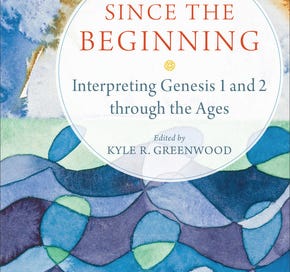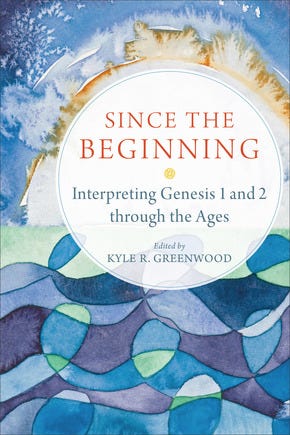Genesis 1-2 Through the Ages
Since the Beginning: Interpreting Genesis 1 and 2 through the Ages.
Edited by Kyle R. Greenwood.
Baker Academic, 2018.
Review by Dr. Andrew Judd
This reception history project traces the way that different interpreters have understood Genesis 1–2, from the Old and New Testaments, via Second Temple and Rabbinic authors, to the church fathers and medieval Jewish and Christian scholars, and finally on to protestant and post-Darwinian exegesis. There is also a chapter dealing with how ancient Near Eastern texts such as the Atrahasis epic inform our reading of the text of Genesis.
This single volume of 308 pages consists of 11 chapters by different contributors, all of a high standard. Some are Hebrew Bible specialists, others are historians and systematic theologians. While the methods vary between chapters, this may actually be a strength as the skills needed to understand the implications of Schleiermacher’s hermeneutics for Scripture are quite different to those needed to unpack the New Testament’s use of Genesis or survey the field of Assyriology.
The book is reasonably accessible, but also supplies ample footnotes to follow up some of the detail. I could imagine it serving as a great supplementary resource for a biblical studies subject. The chapters supply sidebars giving primary texts for comparison, as well as suggestions for further reading, and a list of primary texts in print and available online. There is a Scripture index and a reasonably comprehensive subject index.
Reception history is a difficult task, which requires us to bring our own self into conversation with the past while not allowing our own horizon to dominate. At times I wanted a little more restraint, as when for example contemporary political and theological issues pressed forward into the foreground. But perhaps that is inevitable in a project like this.
Overall a highly useful and wonderfully engaging resource that tells the story of one of the most important and influential two chapters ever written. It is vitally important that we read the Bible in conversation with diverse and long-dead voices. It is only then that we will realise how much our own consciousness is historically effected - and that the ‘literal meaning’ of the text is often just ‘what I thought it meant before I thought it very much.’




